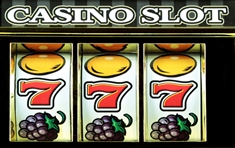September 3, 2014
Enrique Free-Pacheco played the one-armed bandit more than 700,000 times in Las Vegas casinos, winning millions of dollars in jackpots and losing millions more.
Every time the Mexican visitor to Nevada won more than $1,200 in a payoff, the slot machine locked up and the IRS collected its 30 percent, the amount nonresident aliens must pay.
This did not sit well with the millionaire from south of the border who made his millions in investments and a potato farming business.
Free-Pacheco went to court, claiming that his slot machine gambling was a business, and therefore he should be able to deduct his losses and other expenses from his winnings. (Enrique Free-Pacheco v. United States, United States Court of Federal Claims No. 12-121T, June 25, 2014)
 Nonresident aliens can only deduct items involved in conducting a trade or business within the United States. As a result, gambling losses are not deductible by a nonresident alien unless they are considered a trade or business.
Nonresident aliens can only deduct items involved in conducting a trade or business within the United States. As a result, gambling losses are not deductible by a nonresident alien unless they are considered a trade or business.
Free-Pacheco sued for a refund from the IRS of more than $16 million for the years 2007 to 2010.
He took eight trips to Las Vegas in 2007 and gambled for a total of 44 days. He took five trips in 2008 and 2010 and three trips in 2009. He gambled for fewer than 30 days in each of those years.
Because the Mexican millionaire was a high roller and typically gambled on $100 or $200 slot machines, he was comped thousands of dollars in free hotel rooms, meals, shows, massages and other amenities for himself and his family, primarily at the Mirage, Bellagio and Wynn casinos.
From 2007 to 2010, the gambler said he won $55 million in jackpots and $29 million in other winnings, while losing more than $85 million and having over $20,000 in travel expenses. He was comped about $372,000 by the hotels. Overall, he said he ended up with $832,000 in losses.
While many professional gamblers operate as a business, no one has ever claimed to be a professional gambler playing only slot machines.
The claims court decided that would continue to be the case. In a 65-page decision, the court found that Free-Pacheco’s activity “was not carried out with continuity and regularity, and (he) did not demonstrate a sufficient intent to generate a profit through his gambling.”
Some of the gambler’s testimony probably didn’t help.
Q. What did you do to make yourself a professional slot machine player?
A. I think I am a professional player because of the frequency I gamble and the amounts I bet.
Q. Was there anything else that you think makes yourself a professional slot machine player?
A. No, that’s all. The frequency and the amount I bet.
Q. Do you consider your trips to Las Vegas business or pleasure?
A. Well, business, but I have the hope that one day I’m going to win because I am a hunter, and it is said that who persists, gets the deer.
Q. And when you say you hope to win, how much money are you talking about?
A. Well, the more the better. I have seen jackpots of $20 million plus. I don’t want that much. I would be happy with 5, 10 percent of that.
The court found no evidence that he had conducted research or had a business plan or strategy for his gambling.
He said he had read one book on playing slot machines but “that was 25 years ago and I don’t even remember anymore what it said.“
Asked why he didn’t change his strategy after losses in 2008 and 2009, he responded, “I don’t know. But I just didn’t.”
He never attempted to figure a payout rate, profit or loss based on play from different machines.
He chose the slot machines to play on because “I would like the pictures they had on.”
This article was originally posted on September 3, 2014 and the information may no longer be current. For questions, please contact GRF CPAs & Advisors at marketing@grfcpa.com.